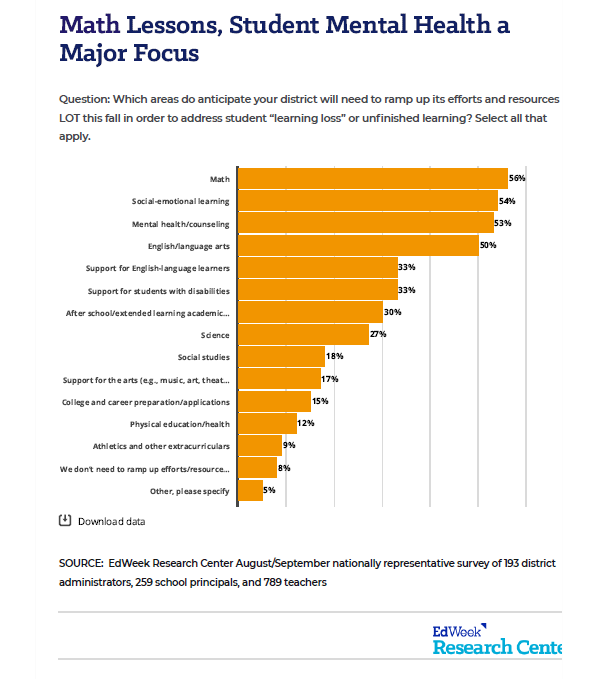School districts in Texas and nationally are using ESSER funds to support students’ mental health needs and well-being. A recent EdWeek Market Brief survey of national K-12 district officials this fall found that social-emotional learning was their #2 concern (after math), with 54% responding that it was a top priority for ESSER funds. Mental health and counseling were next in the priority list, with 53% citing it as a priority.

Many families are suffering the trauma of illness, job loss, and homelessness. Even young children may exhibit anxiety or lack of behavioral and classroom learning skills due to being isolated during remote instruction. The impact on adolescents has been especially concerning: The Centers for Disease Control and Prevention reports that Emergency Department visits increased for adolescents from 2019–2021. In February and March of 2021, “suspected suicide attempt ED visits were 50.6% higher among girls aged 12-17 years than during the same period in 2019.”
Judson ISD’s Executive Director of Student and Family Support Services, Monica Garcia, viewed school counselors as critical to student success even before COVID. The average middle school in Judson had only three counselors for about 1400 students, well over the recommended 250–1 ratio. Then school counselors started regularly documenting student interactions using Frontline Mental and Behavioral Health Management. They recorded almost 2,500 visits each year. That data justified hiring additional counselors, district-based social workers, and a dedicated counselor for high-risk students.
At Judson ISD, the numbers tell the story. Maria Olson, a middle school guidance counselor, trains other counselors to use Frontline School Health Management to document student interactions. With a couple of clicks of her mouse, she can tell you exactly how many students the counselors at each of the 32 schools in the district have seen so far this year. Since the implementation and training, the number of interactions per month has increased from about 200 to over 1600 – a whopping 800% jump. Frontline’s system also enables counselors to access a complete mental health history for students with health or safety concerns. Accessing this information quickly for students in crisis can save lives. With Director Monica Garcia at the helm and School Counselor Maria Olson in the driver’s seat, Judson is a model school district when it comes to monitoring and addressing mental health for students and staff. The Frontline system has proven to be a valuable tool for Judson ISD and will help them document the impact of their investment in counselors.
Mental health conditions are treatable, if intervention is provided early, according to Greg Hansch, Executive Director of the National Alliance on Mental Illness Texas. That’s why districts are investing ESSER funds in hiring more counselors, social workers, and family engagement specialists, and in training teachers and staff in strategies to support students’ behavior and well-being.